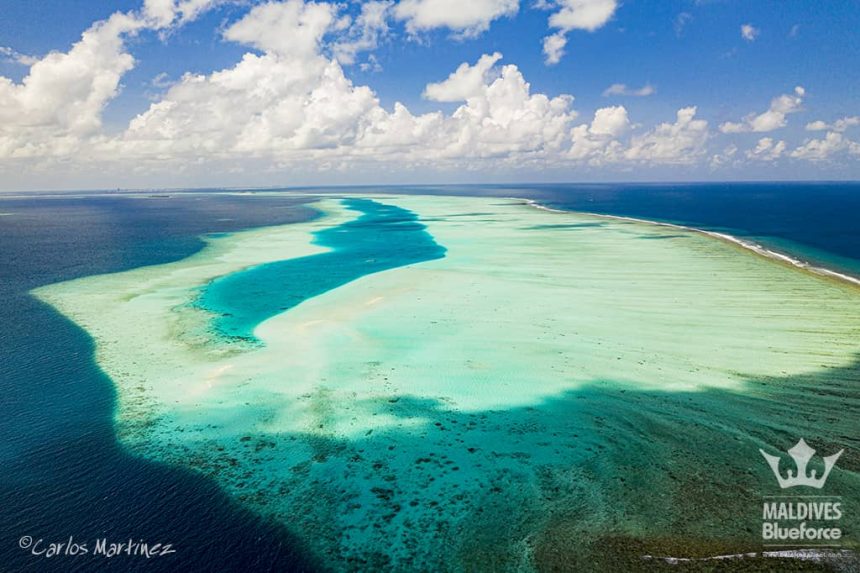In a move that has sparked outrage among industry stakeholders, the Dhonfanu Council has unilaterally declared the closure of the island’s house reef to diving and snorkeling, citing ongoing protests over the land reclamation issue.
The Council announced that the reef will remain off-limits within a 700-meter radius, applying restrictions to tourists, safari vessels, and private operators. This sudden ban, effective immediately, has been justified as a “safety measure” during demonstrations staged by a small group of residents.
Hijacking a National Asset
Critics argue that the Dhonfanu Council has effectively hijacked access to a vital marine area that serves as an attraction for thousands of tourists. Located near the world-famous Hanifaru Bay UNESCO Biosphere Reserve, the reef is a prime site for snorkeling and diving, generating revenue for guesthouses, liveaboards, and the wider Maldivian economy.
Industry observers warn that obstructing tourist access damages the Maldives’ reputation as a safe and welcoming destination, while also undermining local livelihoods that depend on visitor inflows.
Tourism Under Attack
Tour operators and safari operators privately voiced frustration, noting that the Council’s move punishes paying guests and risks long-term harm to the island’s guesthouse industry. “Tourism is the lifeline of our islands. Decisions like this send the wrong message — that visitors are not welcome,” one operator said.
The Council’s action has also drawn criticism for placing local politics above the national interest. Instead of seeking dialogue and compromise, Dhonfanu officials have chosen disruption, creating unnecessary tension in an area known internationally for environmental beauty and hospitality.
Undermining the President’s Leadership
The Council’s unilateral decision also appears to contradict President Dr. Mohamed Muizzu’s clear policy of community-centered and sustainable governance. By weaponizing protests to block access to marine resources, the Dhonfanu Council risks embarrassing the nation on the global stage — just as the President works to protect both the environment and the tourism sector.
Observers fear that the Council’s defiance sets a dangerous precedent where local bodies overstep their mandate, compromising national policies and the Maldives’ reputation abroad.
Call for Accountability
As frustration grows, stakeholders are calling on the government to intervene and restore access to the reef. Many believe the Council must be held accountable for disrupting tourism, harming businesses, and misusing its authority under the guise of “protests.”
The Maldives’ success as a global destination has always depended on cooperation, not confrontation. The Dhonfanu Council’s reckless decision risks undoing years of progress and jeopardizing the livelihoods of the very residents it claims to represent.




